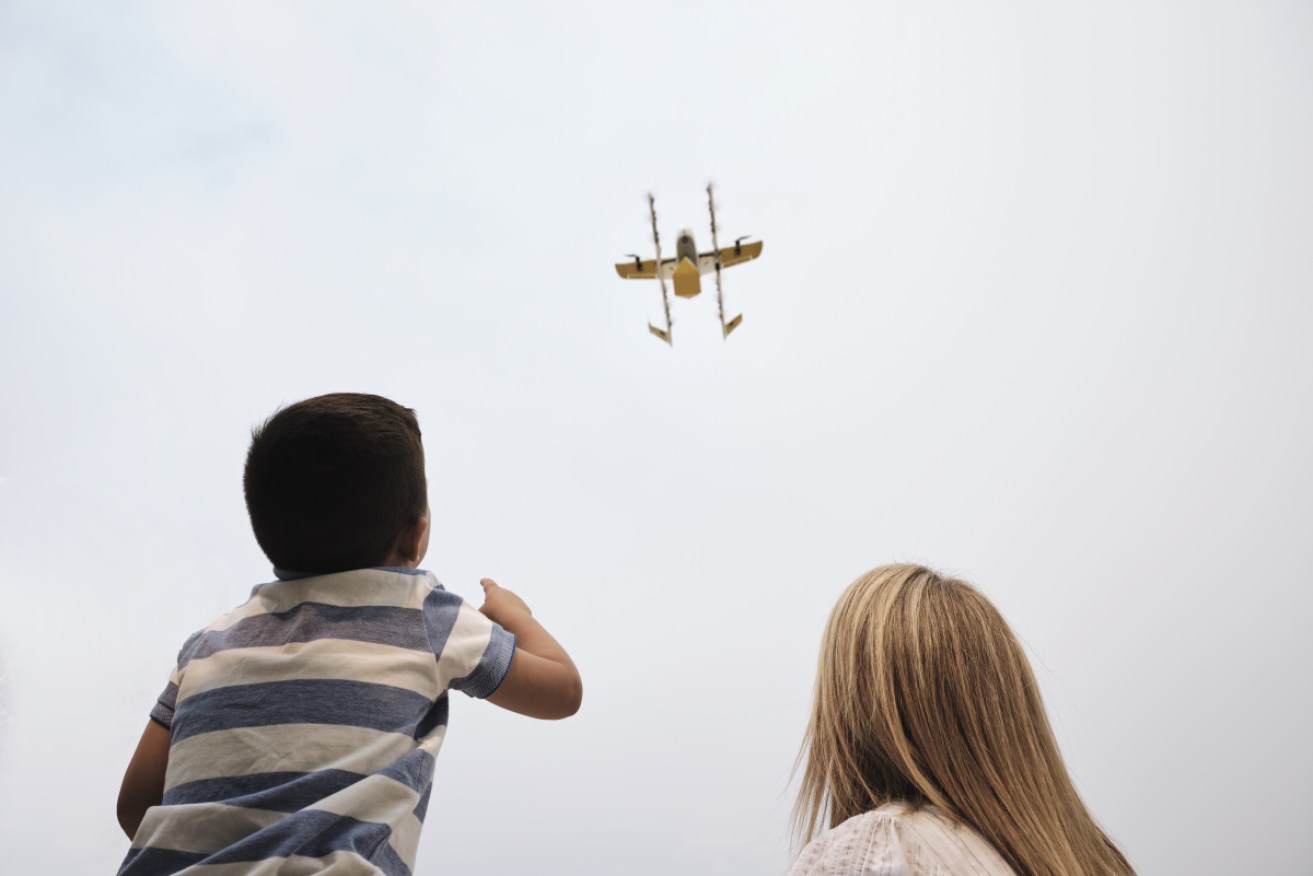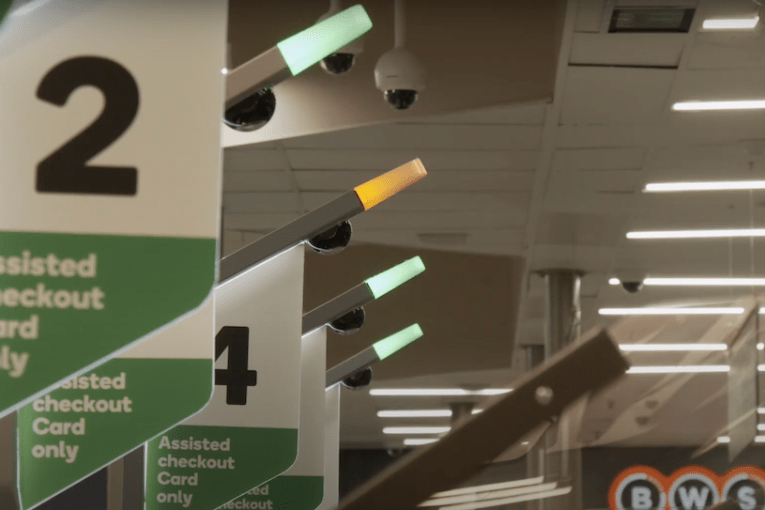Cost uncertainty to leave drone deliveries up in air


Fancy a cuppa without hauling the kids into the car? Drone deliveries promise a convenient alternative. Photo: WIng
A drone company is promising to upend food delivery by delivering coffee to your doorstep faster than a barista can brew it.
In a world first, startup Wing is flying drones at 110km/h to deliver everything from roast chooks to medicine in Canberra and south-east Queensland through an Uber Eats-style phone application.
The futuristic service is being pitched at time-poor families, but analysts said it will be pricey and for consumers not to expect a “sky full of drones” any time soon.
Who wants to use drone delivery services?
Wing’s drone delivery service is currently operating in Logan, Queensland and Gungahlin in the ACT.
The company has made more than 50,000 drone deliveries in Logan this year, and made more than 10,000 deliveries in Canberra during the city’s current lockdown.
Wing head of policy and community affairs Jesse Suskin said interest has picked up among a wide range of demographics during COVID-19.
He said hundreds of new users have signed up during lockdowns.
“We saw people remain customers even after restrictions [ended in Canberra and Logan],” he said.
Queensland University of Technology professor and retail expert Gary Mortimer said consumers are “creatures of habit” who appreciate convenience.
“Any service that provides … faster, more efficient delivery will always be welcomed by consumers,” Dr Mortimer said.
But the fledgling drone delivery industry hasn’t been without its hiccups, with human error still a factor.
Dr Mortimer said a Wing customer in Logan recently waited 40 minutes for a drone-delivered Boost Juice.
“Somebody still needs to receive that order, make that coffee … find the drone, place it within the drone,” he said.
“So there are some challenges in that area.”

Drone deliveries are taking off in Queensland, with 51,000 made this year. Photo: Wing
How much does drone delivery cost?
Wing’s drone deliveries are currently free and available through the company’s app.
However, Mr Suskin said Wing is currently working with partners on a delivery fee that “suits everybody”, rather than the current industry-standard delivery fee model that he said “isn’t working”.
“Some external studies say that [drone delivery] can be done for anywhere from two-thirds to 80 per cent less than typical delivery,” he said.
Dr Mortimer said the costs of drone delivery will be crucial to its success.
“I’d be interested to see if customers are going to continue to use a service to have a loaf of bread … delivered to their house if the delivery charge is high,” he said.

Although he doesn’t think drones will “revolutionise” grocery shopping, Jesse Suskin said consumers appreciate the convenience for small orders. Photo: Wing
Are drones the future of shopping?
Civil Aviation Safety Authority (CASA) spokesperson Peter Gibson said Wing is currently the only approved commercial home delivery drone service in Australia.
He said he had no knowledge of other applications for similar business models but some may be in the pipeline.
Mr Gibson said drone home-delivery services face “complex risks” operating in public areas, but Wing had shown it is a viable option.
Although some companies might be working to increase the distance drones can travel and the weight they can carry, Mr Suskin said consumers shouldn’t expect to do their entire grocery run via drones.
“I’m not sure drones will be the solution for everything,” he said.
“It’s those last-minute convenience items I think we’re best suited for.”
Increased use of drones could also benefit the environment.
A drone delivering a box of dried pasta would use less energy than it takes to boil water to cook the pasta, Mr Suskin said.
Dr Mortimer said drone deliveries of small purchases would mean less unnecessary vehicles on the roads, lowering emissions.
But he said the future growth of the industry in Australia would rely on costs and whether it could operate among apartment buildings in cities, or near airports.
Dr Mortimer said although many Australian consumers still appreciated the social interaction of traditional shopping, many are also becoming accustomed to automation of the industry.








